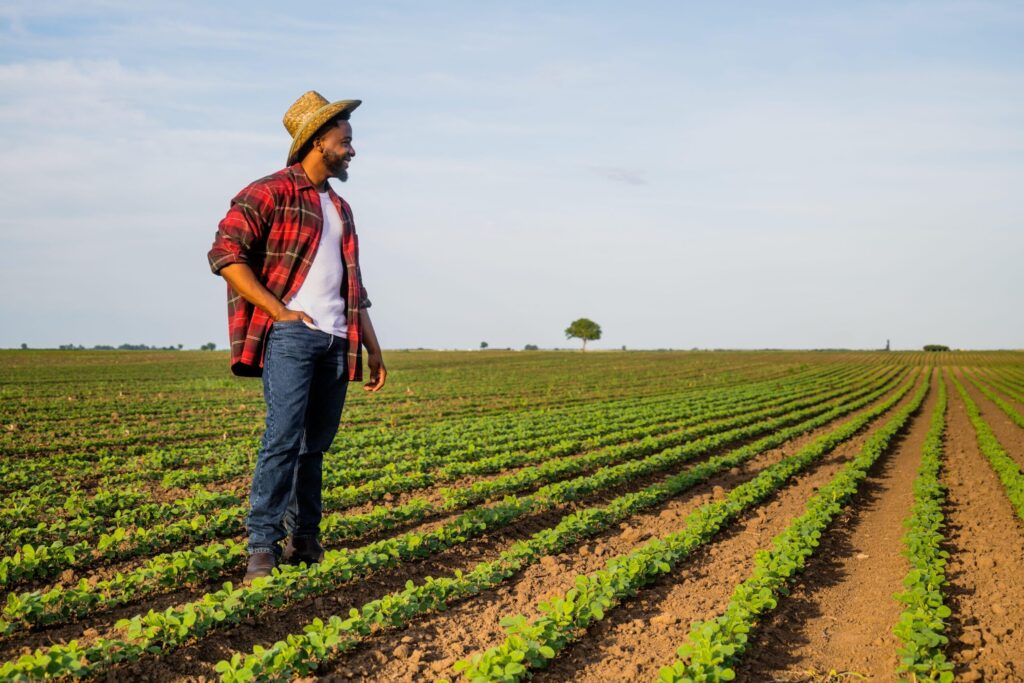President Donald Trump’s so-called “Liberation Day” has triggered seismic shifts in global trade – changes not seen in over a century.
What is increasingly shaping up to be a trade war between the US and China is likely to have significant repercussions for other regions, including the Middle East.
Given the Gulf’s heavy reliance on food imports, it should remain especially vigilant and be prepared to take action in the coming months.
The good news is that the Gulf states have reduced their reliance on US food imports over the past 25 years.
World Bank data shows that by 2022 the share of food product imports to the UAE from the US, for example, had fallen to 6 percent, down by almost two thirds, from 16 percent in 2000.
In Saudi Arabia, the trend was even more pronounced. The US share of food product imports fell from 29 percent in 2000 to, again, 6 percent in 2021.
Meanwhile, countries such as India, Brazil, members of the European Union, Australia and China have become increasingly important trade partners for Mena economies.
Nevertheless, the Gulf will not be shielded from the ripple effects of US tariffs. Modelling by the International Food Policy Research Institute showed global agricultural trade could contract by 3 percent in the absence of retaliatory measures.
This contraction will lead to higher food prices, with the greatest burden falling on lower-income populations.
In the short term, Gulf governments could help cushion the impact by subsidising food prices, ensuring continued affordability particularly for the region’s sizeable migrant workforce.
To understand the potential long-term consequences of Trump’s tariffs, it is worth revisiting a moment from modern history.
After the Soviet invasion of Afghanistan in 1980, the Carter administration in the US imposed export sanctions on the Soviet Union and its allies. One unintended consequence was a resultant blow to American farmers, especially in the Midwest, many of whom were forced into bankruptcy in the early 1980s. President Carter’s approval ratings among agricultural producers in the region never recovered from that decision.
China’s decision to retaliate against US tariffs with a 44 percent levy on soybeans is aimed squarely at US farmers already under pressure
Today, China’s decision to retaliate against US tariffs with a 44 percent levy on soybeans is a calculated move aimed squarely at US producers. These farmers are already under pressure and are now likely to face even greater strain as input costs for fertilisers and pesticides rise amid the broader trade war. The result could be a new wave of bankruptcies among US farmers.
At best, smaller farms may be absorbed into larger agribusinesses. At worst, the US could face a sustained decline in agricultural output, an especially troubling prospect given the rising food demand in rapidly growing regions such as Asia and Africa.
The UN says the global population is projected to rise from 8.2 billion in 2025 to approximately 9.4 billion by 2070, before tapering to 9 billion by the end of the century. This trajectory makes stable and sufficient food production even more critical in the coming decades.
As the Gulf is still somewhat reliant on US food imports, governments should evaluate their strategic options. One potential move could be to invest in US farms, which face financial difficulties in the wake of Liberation Day.
Such a move could help stabilise agricultural production, keep struggling farmers in business and earn political goodwill from President Trump, particularly with the midterm elections just two harvests away. This strategy would build on earlier Gulf investments in Arizona, but with a crucial distinction: targeting the more fertile agricultural heartlands of the American Midwest.
At the same time, this is an ideal moment to deepen engagement with countries across the global south through new free trade agreements, broadening the region’s supply base and reinforcing long-term food security.
For instance, on April 4, South Africa’s ministers of international relations and cooperation and of trade, industry and competition issued a joint statement expressing their intent to broaden trade relations with partners in the Middle East and Asia.
Mutual benefits
A free trade agreement on food and agriculture between South Africa and the GCC could offer mutual benefits, opening new markets for South African producers while strengthening food security for the Gulf.
Such a partnership could serve as a blueprint for broader free trade deals between the GCC and other nations across the global south.
Whatever conclusions the Gulf draws from recent events, one thing is certain: Liberation Day marks the beginning of significant shifts in global trade.
With China having invested strategically in agricultural assets over the past decade, US food dominance is likely to be eroded over time.
These historic developments must be approached with the utmost rationality, to secure both immediate and long-term opportunities for food security in the Gulf.
Martin Keulertz is a lecturer in environmental management at the University of the West of England, Bristol



